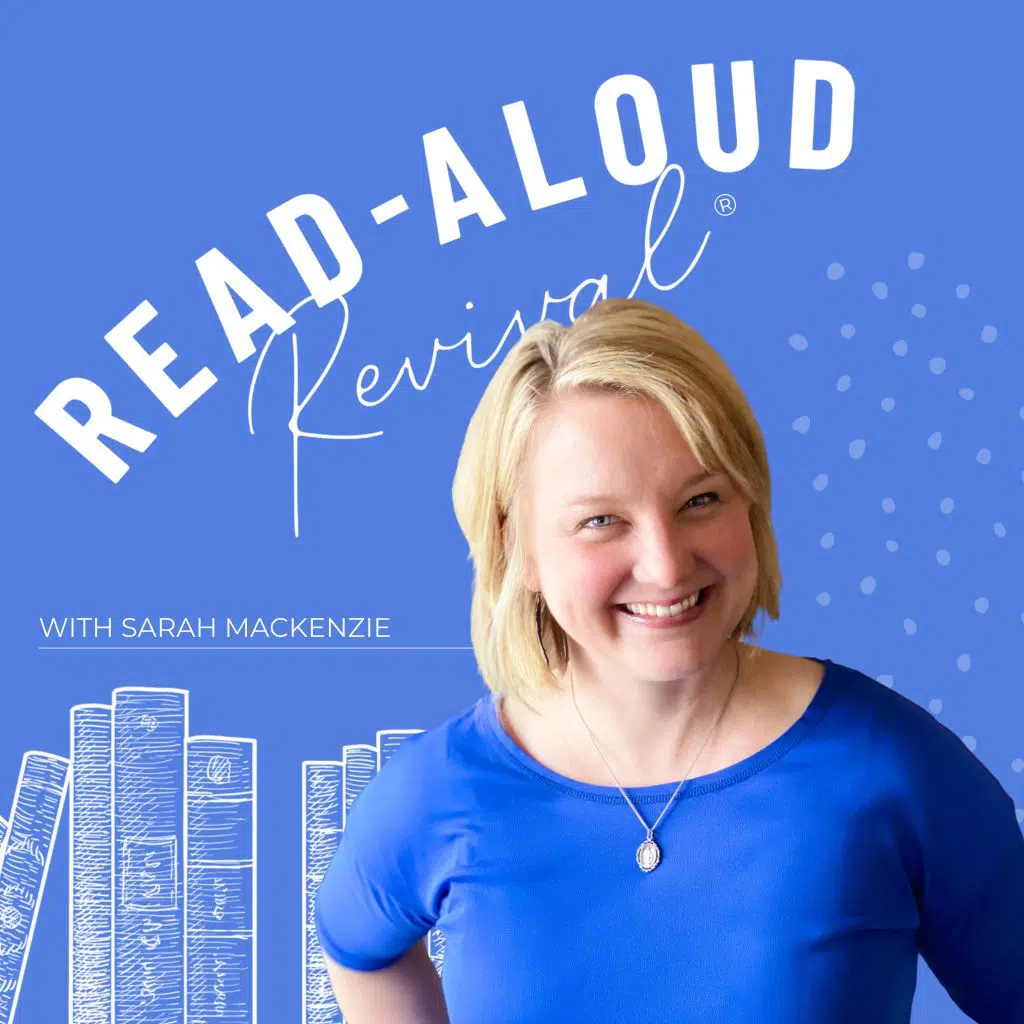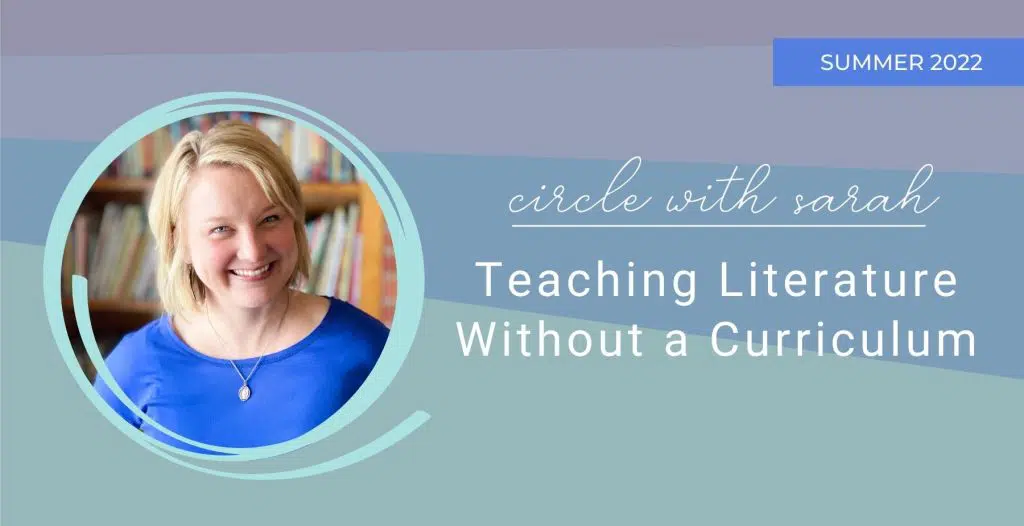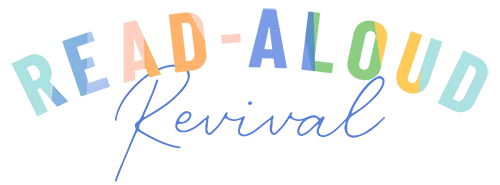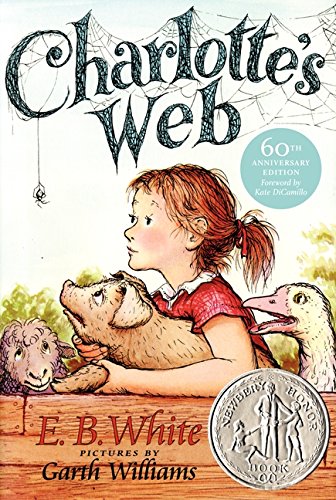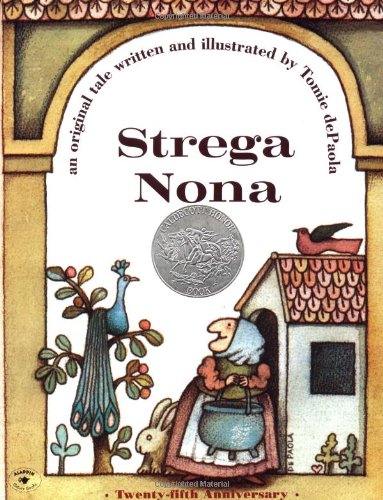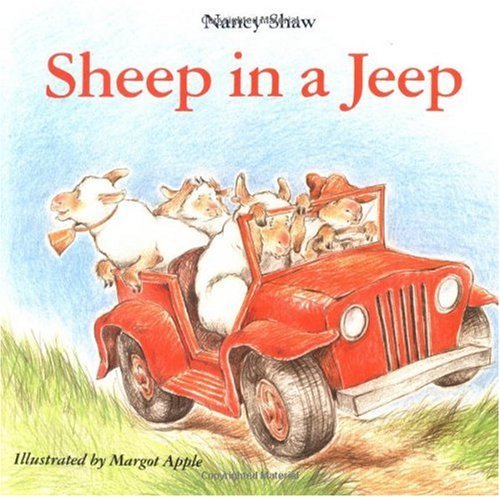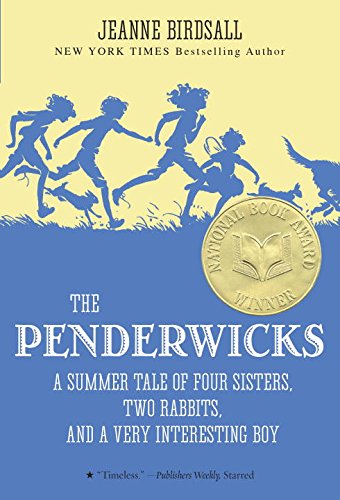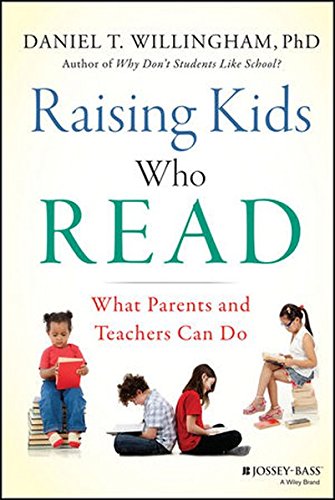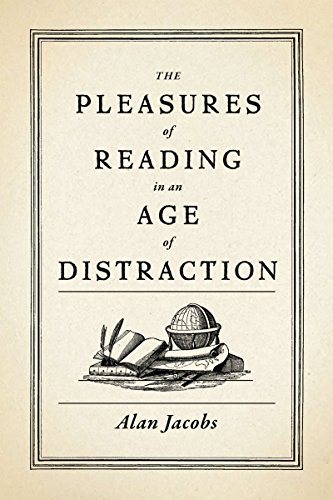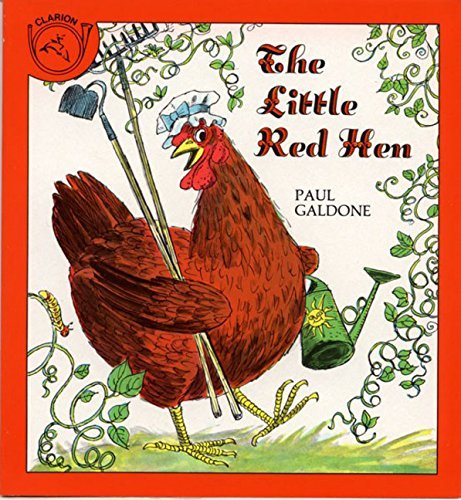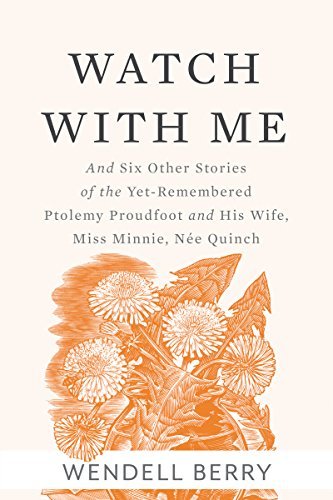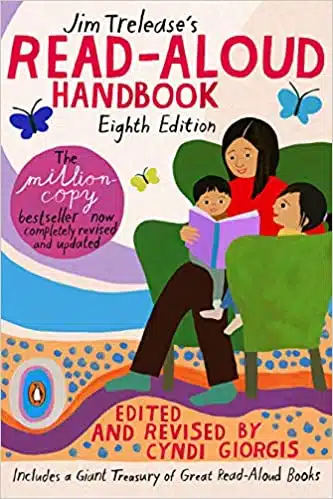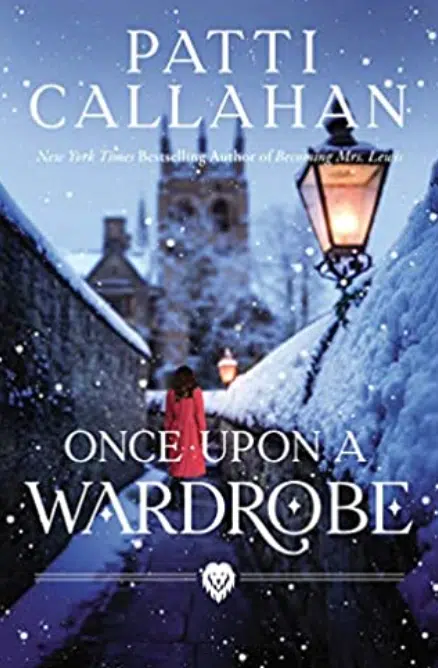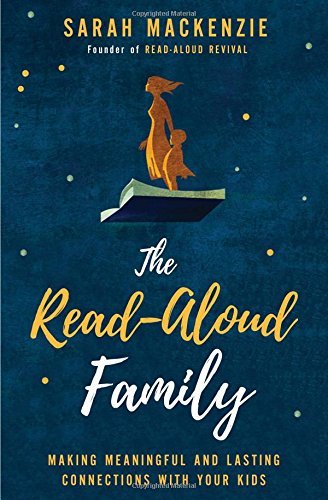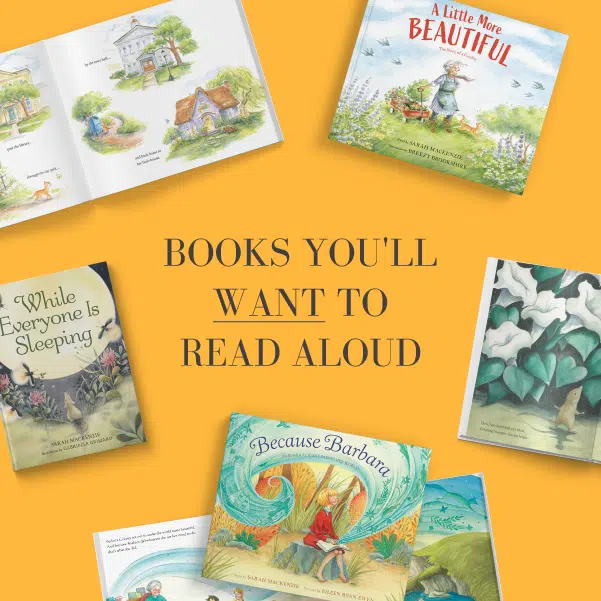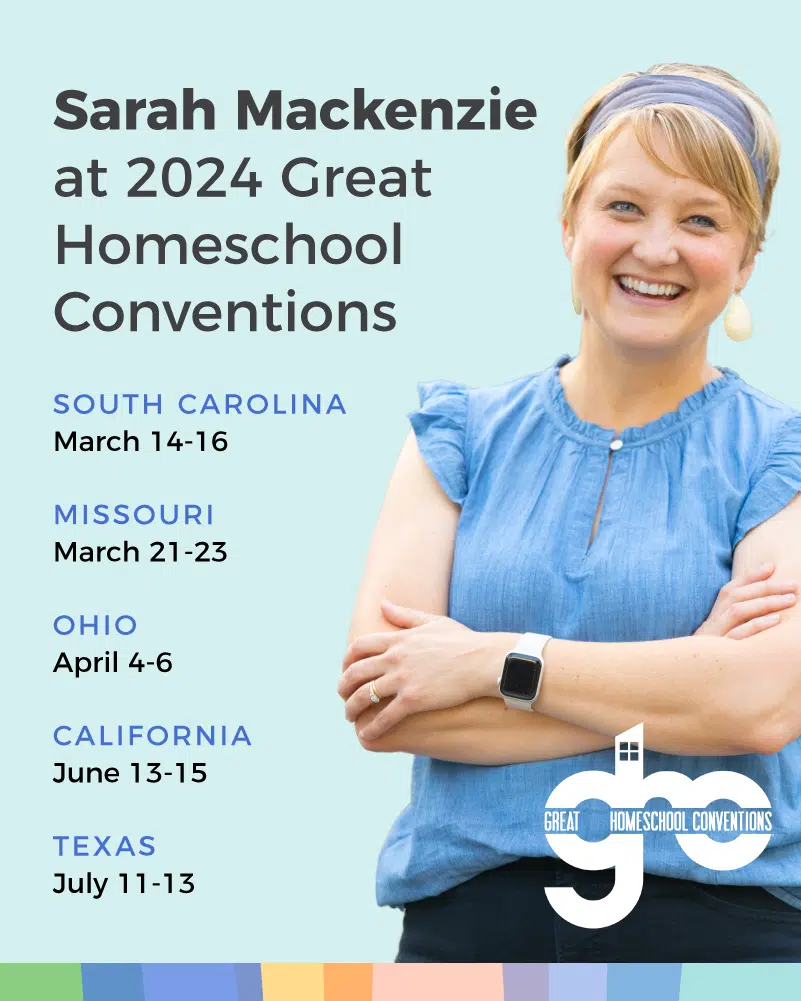Sarah MacKenzie (00:08):
You’re listening to the Read-Aloud Revival Podcast. I’m your host, Sarah MacKenzie, homeschooling mama of six and author of the Read-Aloud Family and teaching from rest. As parents were overwhelmed with a lot to do, it feels like every child needs something different. The good news is you are the best person to help your kids learn and grow, and home is the best place to fall in love with books. This podcast has been downloaded seven million times in over 160 countries. So if you want to nurture warm relationship, while also raising kids who love to read, you’re in good company. We’ll help your kids fall in love with books, and we’ll help you fall in love with homeschooling. Let’s get started.
(01:00):
I don’t use a literature curriculum with my kids. A little background here is that we’ve homeschooled our six kids since the beginning. None of our kids have ever been to school. Our oldest daughter is 20 at the time of this recording, and she’s actually an English major at university. Our next oldest kids are high schoolers, currently a senior and a junior. And then we have three younger kids, twins who are currently eight, and Clara Jane is almost 10. And we don’t use literature curriculum with any of them because I found an easier, simpler, I think more delightful path that has the vantage of making it more likely that our kids will love reading more after they encounter literature after their reading experience in school, not less. And that’s a rogue idea, right? I mean, how many of us loved literature more after our own literature classes?
(02:01):
How many of us actually wanted to reread the assigned texts? The book that you were assigned to make a book report on, or to do a presentation on, or to write a fair five paragraph essay on? Were those your very favorite? Were those the books you thought this book is turning me into a reader? Did you stay up late under the covers with a flashlight wanting to reread the books assigned to you in your literature class, or a book where when you finished it, your teacher handed you a reading comprehension worksheet, and after you did the worksheet, you thought, “Yes, I love Charlotte’s web more than ever now?” Okay. That was not my own experience.
(02:39):
Today, I want to talk about why we want to teach literature without a curriculum, or why we might want to teach literature without a curriculum. Now, I also feel like I should specify here. I’m talking today about literature curriculum, not how to read. We’ve got to teach our kids how to read. And I do like to use curriculum to teach kids how to read. My favorites, I’ll just mention them here. You can find links in the show notes. If you have kids who are learning how to read, I really prefer All About Reading and the Logic of English. You don’t need both. You just need one or the other. So just peek at them and see which one jives better, looks like it’s more into to you. They’re both excellent Orton-Gillingham-based reading programs.
(03:22):
And I have found that teaching kids how to read using a curriculum has been really important in my own home. I know that’s not true across the board, but if you have any dyslexia in your family, if you have kids that have struggled to learn to read, or if you’re trying to wing it by teaching your kids to reading and it’s not working, check those out, all About Reading or Logic of English. They’ll be in the show notes, readaloudrevival.com/196. You’ll find links there.
(03:48):
That’s not what we’re talking about today. We’re not talking about reading curriculum. We’re talking about literature curriculum. So once our kids know how to read, all the read in curriculum after that. So whether you call it your reading class or your literature class, I’m talking about literature class, teaching our kids literature after they know how to read. So I want to make sure that’s super clear. Listen, I am not someone who will tell you to fix something that is not broken. So right here, at the top, I want to say, if you love your literature curriculum, keep on doing it. I’m not going to tell you not to do it. I absolutely firmly believe in using resources that, number one, make your homeschooling life easier, number two, you also enjoy using, and number three, strengthen the relationships in your family. That’s what I think homeschooling resources and published curriculum should do.
(04:39):
So if you’re using a literature, a curriculum and your kids read veraciously for pleasure, they enjoy their school books as much as their free reading books, they do choose to read in their free time, then keep doing what you’re doing. Nothing’s broken. Absolutely don’t ditch your reading curriculum, your literature curriculum.
(04:58):
What’s the purpose of teaching literature in the first place? Really, we got to think about this. What’s the goa? Because we know we want our kids to have literature. They need literature on their transcripts. What’s the goal of teaching literature with our kids? To learn, to appreciate words in their power, maybe to travel to other times, and places, and see the world from a different point of view, maybe to be familiarized with the riches of our culture or our shared cultural touchpoints so that we can communicate and empathize with people, to make sense of the world, to sharpen our own ability, to communicate in writing and in speech, to remember the past, to become familiar with the most important works of literature, encountering the best ideas of the past and the best ideas of the present. Maybe to become a part of the great conversation, to raise kids who become adults who read, to help our students develop robust reading lives. All of these might be reasons.
(06:00):
I believe that a child should love to read more because of their schooling and education, not less. And sadly, that is simply not how it usually works. But I think, based on a lot of conversations I’ve had with other homeschooling parents, a lot of us are using a literature curriculum because we feel like we should because that’s what was done to us in school. And even if our literature curriculum isn’t doing a lot of those things we named as goals, helping our kids fall more in love with the reading life, becoming voracious readers, relishing ideas, and encountering stories and characters on the age, and being a part of the great conversation, and growing in empathy, and being able to communicate, and think about ideas critically, a lot of times I think our literature curriculum isn’t actually helping us do that, but we just keep using it because it’s what we know. It’s how we learned. And we think, “Well, we have to put maybe literature, English literature on the transcript. I have to be able to report this to the state. So I’ve got to use a curriculum.”
(07:04):
But it’s the name of the game in homeschooling that when something isn’t working and it’s not helping you achieve your goals, it’s not doing the thing you want it to do, you have the freedom to do things differently, and maybe you get a better outcome. So if any of those reasons, I mentioned just a second ago ring bells for you and you think, “Yes, I want my kids to love reading more after school, not less. I want them to want to read more. I want them to love reread books that they were reading for school because they love them so much so much,” keep listening because I do too. And I think there’s a better way to do things than just using literature curriculum if that has not worked for you. This whole episode is just an invitation to think about things differently.
(08:10):
Teaching literature does not need to be a hard subject. It doesn’t need to be a hard to teach subject in our home schools. You can teach your kids literature, even if you don’t have an English degree, even if you don’t know the difference between onomatopoeia and a synonym if you can teach your kids literature without a curriculum and they can even go on to college and get degrees in English. I know this because, like I said at the top, my oldest daughter is actually doing that as we speak. She’s an English major at university, and we did not use a literature curriculum.
(08:42):
So I want to read to you a section from my book, the Read-Aloud Family, Making Meaningful and Lasting Connections with your Kids. This is from chapter six. First, I want to read you the epigraph at the top. This comes from Wendell Barry’s book, Watch with Me, a collection of stories called Watch with Me. “When she was hardly more than a girl, Miss Minnie had gone away to a teacher’s college and prepared herself to teach by learning many cutting methods that she never afterward used. For Miss Minnie loved children, and she loved books, and she taught merely by introducing the one to the other.”That’s the invitation here. The invitation is to that we can teach our children literature by merely introducing one to the other, our children, to the books that we love.
(09:34):
Okay, here we go. Page 89 is where I’m at. “The woman plunked down a stack of magazines on the front desk of the library where I worked and turned to her 10-year-old daughter. What did you find? She asked. The girl tucked a strand of long Sandy hair behind her ear. Not much, but I found this. She timidly pushed a faded paperback with a yellow and blue cover toward her mother. The Penderwicks. I exclaimed from behind the checkout, pulling the stack of magazines toward me and typing my password into the computer. You’ll love it. I picked up the book to start scanning barcodes. Wait, what is that? The girl’s mother took the book from my hand and peered through her glasses, eyeing it skeptically. She turns to her daughter. Is this on the list for school? Well, no. The girl started to fidget a slight shade of pink, creeping up her neck. You’re going to waste your time reading something that doesn’t even count. I bitt the insides of my cheeks and watched the mother scornfully shake her head.
(10:40):
She turned to me, you can put this back for us, right? She said, tossing the book on the counter and rolling her eyes. We’ll be back in a minute. First we need to find something that’s actually on the list. She scooped the stack of magazines back into her arms and mother and started to walk away. The mother still talking. Seriously, Emma, there’s no use reading something that doesn’t count. Seeing Emma’s wistful glance toward the Penderwicks now abandoned at my elbow, I bit my cheeks harder. I was struggling not to throw something at the wall.
(11:18):
That particular evening, I became convinced of something I had long suspected. A sense of duty is killing our kids ability to read for pleasure. Jim Trelease doesn’t mince words about this in the Read-Aloud handbook. “Every child begins school wanting to learn to read,” he writes. In other words, we’ve got 100% enthusiasm and desire when they start school. That number declines steadily, however, beginning in late elementary school and continues to decline rapidly every year thereafter. A typical high school student reads for pleasure, approximately, six minutes per day. Dr. Daniel Willingham tells us what this means in his book, Raising Kids Who Read. As a professor of psychology at the University of Virginia, he has researched and written about strategies to help parents enjoy books with their kids. In raising kids who read, he notes that those six minutes a day actually indicate that most kids don’t read at all, while a very few read quite a lot. The natural question is, why?
(12:22):
Trelease answers that in chapter one of his book. He writes, “It was either never planted or driven out by seat work and test prep, leaving no room for a pleasure connection.” He names the decreasing amount of time adults spend reading with kids as they get older as a major factor in the loss of the pleasure connection. Most of us stop reading to our kids as soon as they can read for themselves. And almost no one is reading aloud to middle school and high school age kids, parents, or teachers. This, according to Trelease, is the main reason most kids don’t read for pleasure. It makes sense, doesn’t it? Small children love the warmth and connection of sitting on mom or dad’s lap for a story. For small kids, books equal pleasure. By middle school, though, our kids have absorbed the message that reading is something we you for a purpose, book reports, essays, or quizzes. Reading is something to get through, check-off, finish already. Reading is work.
(13:24):
That day at the library, Emma’s mother made it clear to her daughter that the purpose of reading is academic. Now, you and I might not say that in so many words, but my fear is that even if we don’t believe it’s true, we communicate it with both our actions and expectations. I wonder if schools, teachers, and worst of all, parents are sending a message to our kids that we read solely in order to succeed in school. We light a fire for our smallest children, pulling them onto our laps, reading [inaudible 00:13:55] tales and delightful fables, turning pages and brightly colored picture books, getting lost in tales of Strega Nona, The Little Red Hen, Sheep in a Jeep, but something changes as they grow. They learn to read on their own, so we assume they don’t want us to read aloud to them anymore.
(14:12):
They’re reading assignments aren’t the rollicking delightful tales of their childhood, but school assignments instead. Calendars fill, to do lists grow, and reading for pleasure becomes a thing of the past, a memory. We slowly but surely teach our kids that reading is something you do out of duty rather than for pleasure. Here is something that may surprise you. Parents who think the primary importance of reading is to be successful in school are less likely to have kids who enjoy reading than parents who see reading primarily as a venue for entertainment. Did you catch that? Kids whose parents believe reading is first and foremost a mode of entertainment and enjoyment end up being more veracious readers than those who want their kids to read so that they can succeed in school. They also end up being better readers.
(15:07):
Our attitude about reading and the atmosphere we create in our home matter. Our kids pick up on it, even if we never say anything out loud, even if we aren’t the mother at the library checkout, insisting our child put back that copy of the Penderwicks. It is essential that we communicate with our words, actions, and attitudes that reading is worthwhile for its own sake, not because it improves us or helps us academically, not because it helps us become more articulate, score better on college entrance exams, or gives us a cultural understanding of those around us. It does all of those things to be sure, but it is of paramount importance to communicate to our children that reading is pleasurable and worthwhile for the sheer delight of it. We want our kids to, as the distinguished professor of the humanities and the honors program at Baylor University says, read at whim.
(16:08):
Alan Jacobs explains reading at whim in his insightful book, the Pleasures of Reading in an Age of Distraction, a commentary on the importance of reading for the sheer delight of it. “For heaven’s sake,” Jacobs writes, “don’t turn reading into the intellectual equivalent of eating organic grains or” shifting the metaphor slightly, “some fearfully disciplined appointment with an elliptical trainer of the mind in which we count words or pages the way some people fix their attention on the calories burned readout. How depressing. Rather,” he tells us, “read what gives you delight.” Reading at whim. That is reading for the sheer delight of it may have a bigger impact on the life of your child than you expect.
(16:52):
For many of us, the book we choose to read on our own are the ones that stick with us. It turns out there is nothing magical about a book once it makes it to a grade level approved list or lands on a teacher’s syllabus. The act of picking up a book and reading it for no other reason than enjoyment can open the door for significant impact.
(17:24):
So think back on your own school life, where are the books that you were assigned to maybe do a book report on, or read a five paragraph essay on, or some other thing. Maybe you had to take a comprehension quiz. That’s a very popular thing these days. You have the kids read a book and then they have to answer a bunch of questions. And the single purpose for those questions is to tell the teacher whether or not the student read the book. That is the single purpose of them. If you were to read a book for fun this week, and let’s just say your best friend hands you a book and says, “Oh, my gosh, you’ve got to read this. This just happened to me. I read Once Upon a Wardrobe by Patty Callahan, and I pressed it into my friend’s hands and said, you’ve got to read this.”
(18:06):
And then if she read it and I followed that up quickly with a comprehension quiz, like first, you’re going to take this quiz to make sure you actually read it. I want to make sure you read it correctly. And then you’re going to write a five paragraph essay about… She wouldn’t love it anymore. I just ruined it. I just killed the whole experience. That’s actually not the way that adults interact with books who are voracious readers.
(18:29):
Think right now, in your mind, of the person you know, the adult you know, who reads more than anyone else that you know, who reads for pleasure more than anyone else. Got that person in mind? Ask that person how often they give themselves quick comprehension quizzes on the books they read. The answer is never. They don’t ever do it because the purpose of a comprehension quiz is just to prove to your teacher or instructor that you have indeed read the book. Now, maybe ask that person how many books that they read they write a five paragraph essay on, or write a book report on. I read voraciously for pleasure, and I’ll jot in my reading journal a couple of sentences, sometimes a couple of pages if I really have a lot of thoughts, good or bad about a book that I’ve read, but I’m not writing like an essay to turn in, or making a diorama, or a five paragraph essay because this is not the way that adult readers interact with books. It’s just not how voracious readers do that.
(19:28):
So if we are trying to raise kids who become adults who voraciously read because they want to, it’s worth thinking about the practices we’re teaching them in regards to reading as they grow. I think the way forward is to ditch the literature curriculum completely. And instead, take on a book club model based on this idea of helping our kids learn the skills they’ll need if they’re going to be adult voracious readers. What do adult voracious readers do? Asking that question, and then answering it, and creating an environment where we’re setting the stage for them to become engaged, interested, disciplined, thinking, thoughtful readers who love reading for the delight, and joy, and aliveness that it brings to us. That seems, to me, like such a better way forward than here, read chapter six of Charlotte’s Web, and then take this quiz, and answer the questions.
(20:28):
So instead of that very traditional literature curriculum approach, we don’t need a curriculum at all. We can just read books together, read books alone, discuss them using open-ended questions, and then have simple shared experiences around them. That is how simple this can be. That is the way I’ve been teaching my own kids’ literature for years now. And it’s so interesting to me when my oldest daughter went to college, and she’s in all these classes for her English major. And her teachers have compliments and comments for her on how she thoughtfully reads and responds to books and she’s not ever done a literature curriculum. Isn’t that interesting? It’s like just an interesting thing to consider. You can shake things up and do things in a more delightful way.
(21:20):
Now, I’m going to be teaching a workshop on how to do this. What it looks like on a step by step practical level to teach literature without a curriculum at the Great Homeschool Conventions in 2022. So if you are able to come to any of those, I would invite you to that session. It’s going to be great. We’re going to be talking about how to do this. Those are happening in 2022 in five different locations. Greenville, South Carolina, St. Charles, Missouri, Round Rock, Texas, Cincinnati, Ohio, and Ontario, California. I’ll be at all of them. I love going to them. I love seeing you, and connecting with you, and giving you book recommendations when you give me a hug, getting your book recommendations.
(22:05):
I’m doing four different sessions at the Great Homeschool Conventions. How to teach literature without a curriculum is one. Another is the 10 best questions we’ve been asked. That’s what I’m doing with Andrew Pudewa from the Institute for Excellence in Writing. And then, I’m doing two with Pam Barnhill and Colleen Kessler. One is a real mom tour, which is a really fun mom’s night out on Thursday night. It’s fun, encouraging, lighthearted. And then we also do a real mom panel, which is like a Q&A where we answer all your questions, as many questions as we can in an hour. So if you are able to come to a Great Homeschool Convention, please come, give me a hug, and say hello. I’ve got a coupon code for you. You can use the code REALMOM. That’s all one word, REALMOM, to get $10 off your registration. And then, I’m also going to make my own workshops, the one with Andrew Pudewa, and also this one on how to teach literature without a curriculum, available to RAR Premium members.
(23:04):
So if you are unable to get to a GAC conference, you can get into RAR Premium to get access to it. Those are going to be available mid-summer 2022, after the Great Homeschool Conventions have wrapped up. I’ll make those available in RAR Premium. But you don’t necessarily have to wait because it’s a very simple system. We’re talking about reading with our kids and also having them read alone, giving them lots of time to read, and using open ended questions and shared experiences to enliven and enrich their reading experience, and to help them become better, more thoughtful readers. And we use that same model, this three pronged stool model in RAR Premium every month for our family book clubs. This is how we teach literature without a curriculum in RAR Premium, is through a family book club every month.
(23:56):
And our entire family book club program is built on this idea that we want to help our kids love reading more because of the reading they do for school, not less, not they’re avid readers and they even survived the reading they did in school. We want the reading they do for “school” to help them become better, more thoughtful, more engaged, more interested, and curious readers, and to love reading more than ever because of the way that they were educated. So if you are excited by this episode and you think, “Yes, that is what I want for my kids.” Then just head over to RAR Premium, grab this month’s family book club guide, and you have all the tools you need to teach your kids literature without a curriculum. And you can do that at rarpremium.com. Let’s go ahead and hear from the kids about the books that they have been loving lately.
Speaker 2 (24:57):
My name is [inaudible 00:24:59]. I’m from Colorado Springs. I’m seven years old. My favorite book is The Dress and the Girl, and I like it because it’s extraordinary.
Speaker 3 (25:14):
My name is [inaudible 00:25:16]. I’m from Colorado. I’m four years old. My favorite book is Tractor Mac. I like it because they build a barn at the end.
Ruby (25:33):
My name is Ruby. I’m from Colorado Springs. I’m seven years old. And my favorite book is The Lion, the Witch, and the Wardrobe. And I like everything about it.
Hudson (25:49):
Hi, my name is Hudson. I am six years old. I live in Oklahoma City, and I am six and a half. And my favorite book is Ramona and also [inaudible 00:26:01]. And why I like them is because they’re both silly.
Josiah (26:05):
Hi, I’m Josiah. I’m nine years old. And I like How to Train your Dragon because Hiccup goes on adventures with his very best friend.
Speaker 7 (26:20):
Hi, my name is [inaudible 00:26:20], and I am four. And my favorite book is Ramona. And why I like Ramona is because she’s silly.
Sarah MacKenzie (26:30):
Thanks for listening. If you’ve got a question for an upcoming episode, leave me a voicemail at readaloudrevival.com/message. Until next time, Go make meaningful and lasting connections with your kids through books.
(26:51):
So many of us feel overwhelmed in our homeschool. There’s a lot to do, and it feels like every child needs something a little different. The good news is you are the best person on the planet to help your kids learn and grow. And home is the best place to fall in love with books. I’m Sarah McKenzie. I’m a homeschooling mother of six, the author of Teaching from Rest and the Read-Aloud Family. And I’m the host here on the Read-Aloud Revival Podcast. This podcast has been downloaded over eight million times. And I think it’s because so many of us want the same things. We want our kids to be readers, to love reading. We want our homes to be warm and happy havens of learning and connection. We know that raising our kids is the most important work of our lives.
(27:54):
That’s overwhelming, right? You are not alone. In Read-Aloud Revival Premium, we offer family book clubs, a vibrant community, and Circle with Sarah, coaching for you, the homeschooling mom. So you can teach from rest, homeschool with confidence, and raise kids who love to read. Our family book clubs are a game changer for your kids’ relationship with books. We provide you with a family book club guide and an opportunity for your kids to meet the author or illustrator live on screen. So all you have to do is get the book, read it with your kids, and make those meaningful and lasting connections. They work for all ages. From your youngest kids to your teen.
(28:47):
Every month, our community also gathers online for a Circle with Sarah to get ideas and encouragement around creating the homeschooling life you crave. They’re the most effective way I know to teach from rest and build a homeschool life you love. We want to help your kids fall in love with books, and we want to help you fall in love with homeschooling. Join us today at rarpremium.com.
